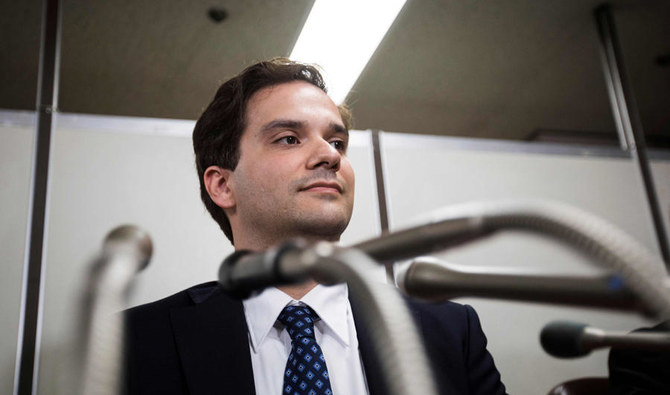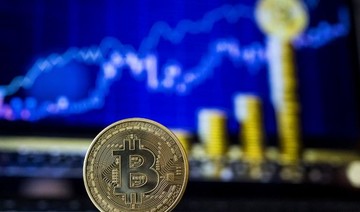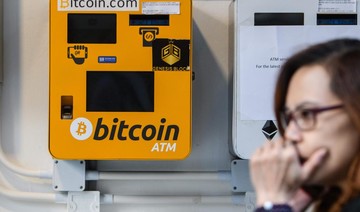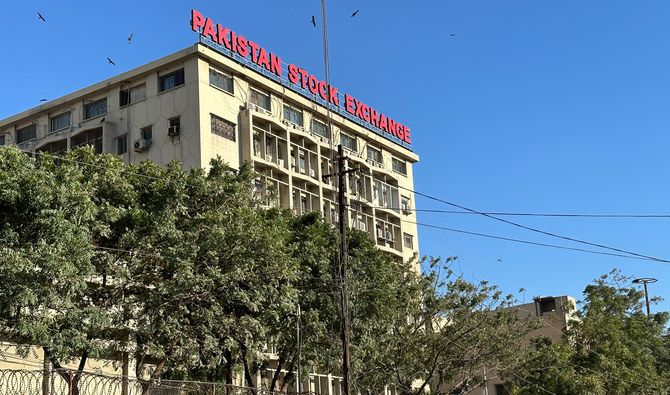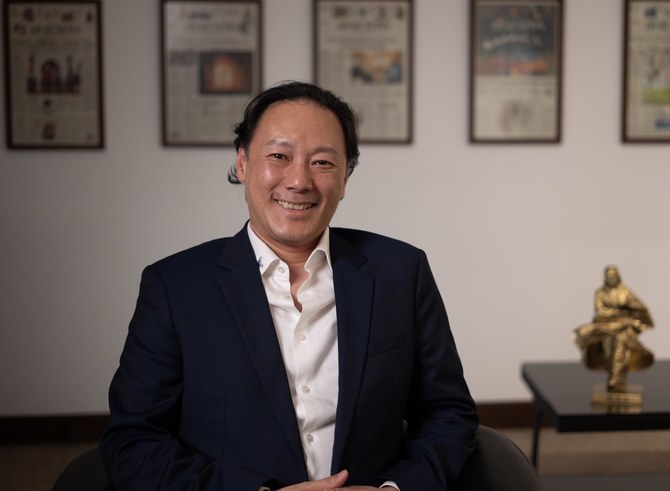TOKYO: A Japanese court sentenced the former high-flying creator of the MtGox bitcoin exchange to a suspended jail sentence of two and a half years Friday after finding him guilty of data manipulation.
The Tokyo District Court convicted Mark Karpeles, a 33-year-old computer whizz from France, for tampering with computer data but acquitted him over charges of embezzling millions from client accounts.
The sentence was suspended for four years.
In a summary of the ruling, the court said Karpeles had “harmed the users’ trust greatly” by manipulating data and “abused his expertise as an IT engineer and his position and authority.”
Prosecutors had claimed that Karpeles had pocketed some 341 million yen ($3 million) of client’s money and splashed it on a lavish lifestyle. They called for him to serve 10 years behind bars.
However, in throwing out the embezzlement charges, the judge said there was no financial damage done to MtGox and ruled that Karpeles did not intend to cause any damage.
The judge cited an expert opinion that said owners of small and medium enterprises often borrow funds without proper accounting and ruled that the court assumed Karpeles intended to return the money.
Karpeles entered the courtroom wearing a dark suit and black shoes and he bowed politely to the judge. He was motionless after the verdict was read out.
After the sentencing, the judge asked if Karpeles understood the sentence. Karpeles responded simply: “Yes, I did.”
MtGox was shut down in 2014 after 850,000 bitcoins (worth half a billion dollars at that time) disappeared from its virtual vaults.
The scandal left a trail of angry investors, rocked the virtual currency community, and dented confidence in the security of bitcoin.
At one point, MtGox claimed to be handling around 80 percent of all global bitcoin transactions.
During his trial, Karpeles apologized to customers for the company’s bankruptcy but denied both data falsification and embezzlement.
“I swear to God that I am innocent,” Karpeles, speaking in Japanese, told the three-judge panel hearing when his trial opened in 2017.
Karpeles always claimed the bitcoins were lost due to an external “hacking attack” and later claimed to have found some 200,000 coins in a “cold wallet” — a storage device not connected to other computers.
“Most people will not believe what I say. The only solution I have is to actually find the real culprits,” he told reporters his trial hearing in July 2017.
The acquittal on embezzlement came as a surprise as the vast majority of cases that come to trial in Japan end in a conviction.
Karpeles himself said in an interview with French business daily Les Echos on Wednesday that he had little chance of acquittal.
“All I can hope for is a light sentence which will mean I do not have to go back into detention and do forced work,” he said.
The Frenchman was first arrested in August 2015 and, in an echo of another high-profile case against former Nissan chief and compatriot Carlos Ghosn, was re-arrested several times on different charges.
Karpeles eventually won bail in July 2016 — nearly a year after his arrest — paying 10 million yen to secure his freedom pending a trial, which began in July 2017.
During his time on bail, Karpeles has been active on social media — notably voicing doubts about bitcoin and replying to some media questions about conditions in Japanese detention centers.
However, he has largely avoided commenting on his case in detail.
In many ways, the rollercoaster ride of Karpeles has mirrored that of the bitcoin cryptocurrency that made him rich.
At its height in December 2017, the value of a single bitcoin was around $20,000.
It has since slumped and is now worth just under $4,000.


